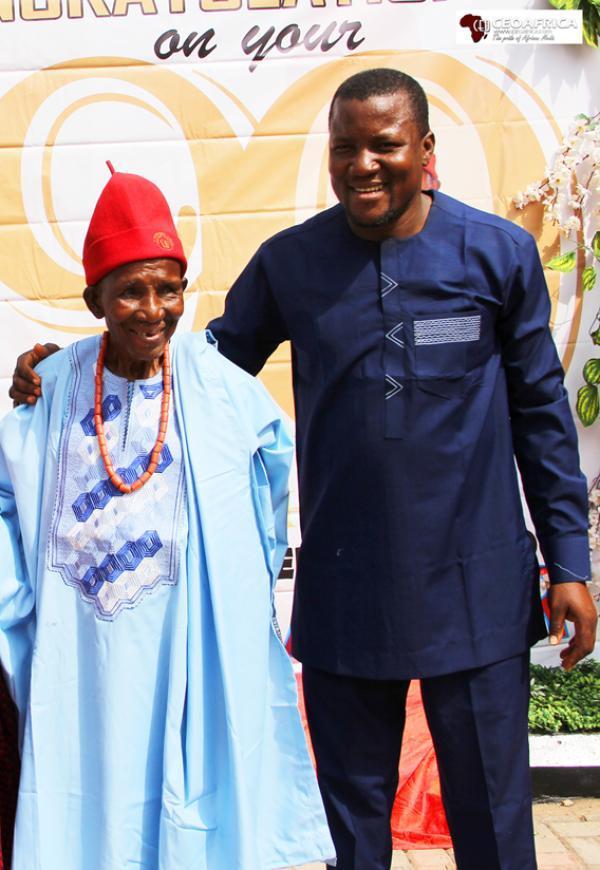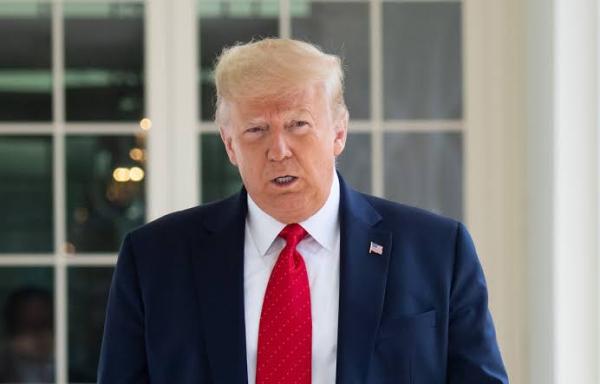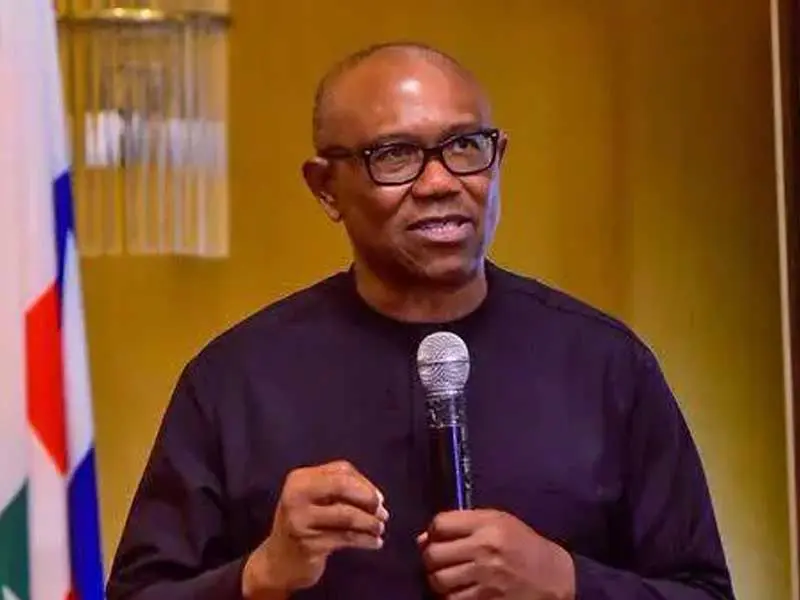One of the most ambitious and important global agreements in recent history is the Agenda 2030 which focuses on transforming our world: The Agenda 2030 for Sustainable Development. Recently, Professor Olanrewaju Olaniyan, the Director, Centre for Sustainable Development (CESDEV), University of Ibadan spoke with CEOAFRICA during the 10th Annual Ibadan Sustainable Development Summit (ISDS) 2019 where policy makers, researchers and Civil Organizations gathered to discussed on the theme “Building and Sustaining Strategic Partnerships for the Achievement of the Sustainable Development Goals” to provide solutions to the sustainable development in Nigeria. In his chats, Professor Olanrewaju discussed way forward toward achieving the sustainable development goals.
Can we meet you sir?
I am Professor Olanrewaju Olaniyan, the Director, Centre for Sustainable Development (CESDEV), University of Ibadan.
Why the choice of the theme ‘Building and Sustaining Strategic Partnerships for the Achievement of the Sustainable Development Goals’ for this year summit?
The choice of the theme was very incisive because the Sustainable Development Goals (SDGs) were agreed upon by the United Nations, Heads of government in September, 2015 and it started operation in January, 2016. The idea was to have this Seventeen goals that would be achieved by all governments of all countries after 15 years which is by 2030. The philosophy of the goals was the fact that, we wanted to make poverty history anywhere around the world and in making poverty history, we wanted to ensure that we leave no one behind, everybody must be involved , and it becomes an essence of development. In crafting the 17 goals, there are 5Ps that guides the principles underlined as the Sustainable Development Goals and they includes: The People, Prosperity, Planet, Partnership and Peace. The principle was that if the world can achieve what is good for these 5Ps, then we would be able to end poverty anywhere around the world. That was what drives the ideas behind the recent theme of the Ibadan development summit. The summit actually started before the advent of the Sustainable Development Goals but in 2015, when the leadership of the government around the world were going to agree on the sustainable development goals, we had a conference which we called the ‘Post 2015 Agenda’ because as at that time they have not narrow down that there was going to be the SDGs and we called it Post 2015 Agenda and what it holds for the developing world. When it was agreed upon in 2015 and we had these 5Ps, the centre decided that we would use each of those Ps as the focus of the Sustainable Development Summit over the next 5 years from 2016 to 2020. So, in 2016, the summit discussed about the first P which was People; 2017, Prosperity; 2018, Planet; 2019, Partnership and in 2020, we are going to talk about the last P which is Peace. The reason behind this year summit was that, partnership was one of the reasons why we are going to achieve the sustainable development goals anywhere in the world.
There was the believe that development is about everything, it is not the main stay of any growth, but we found out that people have been working in silos, they worked differently. People in health works on health issues while those in government works on government issues but if we truly want development for everybody, we must all collaborate, work together and forge partnerships among ourselves and those partnerships if they work would then lead us to achieving the sustainable development goals. There is one key word in the theme that we need to look at which is ‘Strategic’, It is not just partnership. You can form mediocre partnership which could lead anybody to nowhere. You must be strategic informing the partnership with the objective that at the end of the day, we will be able to leave no one behind and we will be able to make poverty history across the world.
The SDGs, having kick-started in Ibadan 10 years ago, in your own assessment, how far have you gone in achieving some of these SDGs in Ibadan and Nigeria as a country?
When we say Ibadan development summit, we are not narrowing it down to only Ibadan Sustainable Development Summit. We were looking at the sustainable development of everywhere, but which will be held in Ibadan town. When we talk about the SDGs Ibadan, the city has a peculiar issue, is one of the largest cities in Nigeria, and is also growing at a phenomenal rate. I am afraid Ibadan has not moved very well when it comes to sustainability and development issues. Sustainable development issues in Ibadan has been on the background especially when you look at the tripod on which the SDGs rest which is the environment, economy and social. We have always tried to deplete our environment in Ibadan as about the 7 forest reserves we have were no more. We have not done well in terms of sustainable development in Ibadan and one problem Ibadan has is that it doesn’t have a working master plan and I am sure Ibadan will be one of the biggest cities in the world without a master plan. Just last year, 2018, the government launched the Ibadan Master Plan, whether it’s or working or not I don’t know and that tells you that Ibadan has not done extremely well when it comes to sustainable development.
Look at the environment, for those who lives in Ibadan, everybody knows that the length from Dugbe to Gate, Beere to Gate, Dugbe to Apata and Gate to Molete, both sides of the streets were filled with trees, am not sure there is any tree along that route again as they are gone. Those are definitions on the fact that sustainable development in Ibadan has gone haywire. Another instance, when you look at the old schools when the missionaries came, schools were built with an idea of sustainability. If you go to any old school today in Nigeria, that school will be filled with trees and not just trees. They will be filled with economic trees like Mango trees, Cashew trees, Almond fruit trees and Dongoyaro trees, the idea was that you put those trees in those schools for sustainable development. The students of the school are supposed during cashew season take the cashew and drop the seeds and the school sells the seeds. Imagine a Secondary School in a town selling cashew seeds of close to a million naira in a year. That’s already development and I can tell you that there are schools in Oyo State where we are that every cashew season, they sell cashew seeds of close to half a million. Nowadays, those trees have been cut down in many schools, there are no longer Mango trees. Those trees support sustainable development because the pupils have something to eat when they get to school, the trees provide shade for them and the school itself can get income through the selling of the cashew seeds for money. These are some of the issues that has happened when it comes to sustainable development. That essentially is different from sustainable development goal, sustainable development is embedded in those goals. And what does it mean, sustainable development is the development that meets the need of the present without compromising the ability of the future generation to meet their own needs. If you look at what happens, it then means that any development process must ensure that those generations that are coming behind us must also have more development than we have rather than we preventing them from developing, and that was why the idea of these 17 goals came in.
The 17 goals are not just for Africa, it is for every country and it means all these goals must be achieved if we want to term them development. Unfortunately, many African countries including Nigeria have not been able to progress very well in a way that will show that by 2030 we will be able to meet those goals. We must continue to talk to ourselves to make sure that we achieve these goals because one person cannot achieve the goal of poverty reduction as it involves partnerships among all stakeholders, government, private sectors, civil society, mother, father and children. All the goals are important as they are interwoven because you cannot reduce poverty to zero level without good health among other goals because they are all relatively connected.
Recently, the government said it’s going to take Hundred million of Nigerians out of poverty by 2030, is that feasible looking at our development plan which we are not doing again. What can we do to achieve that goal?
Am a very clearly optimistic person. I think he can move that number of people out of poverty. Moving people out of poverty does not say you are making people to be rich, moving out of poverty means that having all the basic needs of life you can have like basic health, education, clothing, transportation among others, then, in as much you can feed yourself three times a day with free movement, you are no longer a poor person since your basic needs are being met.
So, when government says they are moving people out of poverty, I don’t think the idea was that, they are going to make everybody a millionaire. It is to make sure that all those facilities and services they will provide, and the people will have it.
If the government make it a point of duty that all these 17 goals are achieved by 2030, everybody would have moved out of poverty. And, all these basic services, do we have the political will to achieve them? With what the president has said, I think we already have the political will in Nigeria but whether that political will would be back by political action is a different thing. If government is willing and appropriate action are taken, I sincerely believed that looking at all these goals and achieving them, we have an opportunity of taking people out of poverty.
In the next four years, what can we do to reduce poverty?
Unemployment rate among the youth in Nigeria is above 20%, unemployment should be reduced. Government should provide what one of the goals says, ‘Decent Jobs’. Decent jobs and employment mean that people working and are earning income that is commensurate to their productivity. When you provide decent job that people are able to work, earn enough income in line with their productivity, it increases the access of those who depend on them to also do well, it increases the income of the government if he is able to tax them appropriately and it reduces stress and problems within the country because when people are employed, there will be less crime and another major problem is to work on infrastructure. The major problem that Nigeria has that is impeding most of the growth prospects is that, the infrastructure in Nigeria is not at the level that it should be. The economic, transports and power infrastructures are still not one of the things that people can be happy about. The social services also need to be provided in a quality manner, education and health are key because once people are children, they need education, if you don’t provide quality education now, the children will grow to become adult whether you like it or not or they would become imbecile adult. So, it is better to give them the opportunity to be children and to learn what they are supposed to learn so that, at the end of the day, things will be better.
In my own view, if we can do all these, am sure poverty will be reduced to a very large extent.
How can we sustain the issue of over population in Nigeria towards achieving the SDGs?
The population issue is a big issue and I will say it is a big elephant in the world. One thing that will affect most of the developmental issues in the country is that Nigeria is going to be 400 million and it’s going to be the third most populated country in the world. Even when people says that Nigeria is the poverty capital of the world and they are saying that because the poverty clock says about eight Nigerians enters poverty every minutes but our population can explain that because, the population of Nigeria at the current rating indicates that 12 Nigerians are born every minute. So, if eight people move to the poverty and twelve Nigerians are born every minute, it does not mean that government is not doing well, it means that population is our problem. If only four people are born and not twelve, then four people will move out of poverty without government doing anything. So, the population is a big issue and how do we solve the problem of population? We can solve the population problem by asking people to be responsible for the number of children that they have, take responsibility and to know that having children is a matter of responsibility because if you bring anybody into this world, that person must enjoy sustainable development which is the ability of you to be develop without preventing that child from being developed. If you know that you are going to bring a child that is going to live in poverty, then don’t bring that child as that would be against sustainable development. What we have not done in Nigeria is that we have not been able to advocate enough to people that when you are going to have children, you must do it out of enormous responsibility. We need to be more responsible with the way we deal with our fertility rate to control population in the country.





















